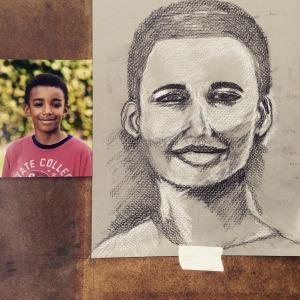
Watching Ava DuVernay talk about Selma. Seeing black bodies beaten by white police officers.
"That was the past. They should get over it."
You might think that these words came from the mouth of a conservative white male who is tired of talking about slavery, tired of talking about Jim Crow, and more focused on modern-day theories of black cultural pathology to explain today's disparities (someone like him). But you would be wrong.
Those words came out of the mouth of my nine-year-old son.
My black nine year old son.
At first, I was simply stunned. Is he seeing what I'm seeing? We're watching black people - black people like us - being bitten by dogs, assaulted with fire hoses, beaten by cops. But all he saw was "history," something unconnected to him and his life.
In some ways, his response should please me. Paula Giddings once told me that one of the best ways middle class blacks can be a part of the struggle is to enjoy the lives we have. Because successful black people were killed for enjoying their lives.
My boy lives a good life. He goes to a good school. He's never been called a nigger or a porch monkey. He's never been stopped by the police. He's only encountered officers there to protect him. He leads a good life.
And I've successfully protected him. Every school year, there is something and someone new waiting to knock him down. To deny his intelligence. To stereotype him as a troublemaker. And every year, I've fought for him. I fought for them to simply leave my boy alone. I continue to fight for him and all black boys in our district.
But maybe I did too good of a job. Because he has no idea that there were fights to be had.
Yes, we've talked about Trayvon Martin and Eric Gardner and Mike Brown. We've attended rallies against the death penalty, and the state-sanctioned murder of black men. He is surrounded by our black "family," the close friends that are at every birthday and school play, no matter what. He attends what we call "black camp" when he visits his grandparents on the East Coast for two months every summer, like our folks spent summers down South. We constantly talk about black people, past and present. I point out that they are black. We talk about race in our house.
But somehow, he's not connecting these "lessons" to him and his life.
Maybe because he lives surrounded by black excellence. He lives on a college campus. All our family friends are black professionals - lawyers, doctors, PhD students, PhD holders. His mama has a PhD. Black people being great is what he sees. He hasn't learned first hand the barriers one must overcome to be where many of us are.
But our children are more likely to experience downward mobility than other folks. As much as we'd hoped it would, all we - the collective we - have worked for is often not enough to shield them from the realities of blackness. As Chris Rock said, most white people would never change places with him and become a black man. And he's rich. Although my boy doesn't get it now, life will make him understand what it means to be black.
Back to our conversation - I hope I quickly recovered from my original shock. I explained to him that he lives a good life quite unlike many black people. That the reason he is the only black boy in his grade at school is because not many black people live here because not many black people can afford to do so. That mama went to an all black school when I was a kid because policies made it such that black people lived in a different place than where white people lived. That black people go to prison more often than white folks, that black people go to colleges like Stanford less than white people, that black people make less money than white people. That even though we aren't being beaten in the street on national TV, black men are being killed by police officers because they look scary - and that they are afraid of us simply because we are black. That even though we have a black president, the president has a limited role in making things better for people. That black people still aren't thought to be as smart as white folks. That black people are not respected like other people.
That's when he looked at me. "Well, I'm going to be an engineer when I grow up, and I'll show them." Pause. "I mean, all I want is to be respected. I just want to be respected."
That response soothed my soul for a little while. But I want him to know he should be respected whether he is an engineer or an artist or an athlete or a teacher or lawyer or homeless. He shouldn't - and he doesn't - have to do anything to "gain" respect. He should be respected because he is a human being, just like everyone else. I want him to have a sense of the linked fate that I feel towards other black people, other disrespected people, other people considered "less than."
That's going to take many more conversations. But next time, I'm gonna be ready.
